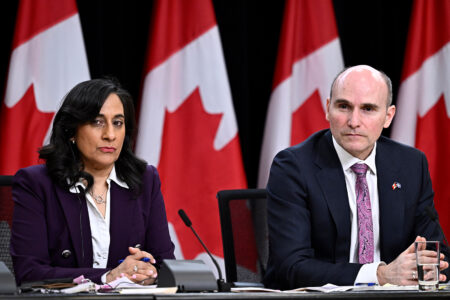
Ian Brodie makes bold recommendations in his article, which has created a buzz in the university community. His “challenge” should be a welcome one: Canada needs to back its top-performing universities in an ambitious, targeted fashion (and grow their number) if Canada is to compete in a sustained manner, on the international stage.
While one might debate the details, his underlying intentions should be embraced. Universities play an essential role in ensuring the health, social and economic well-being of communities and nations. This is widely evident. Rankings such as the IMD World Competitiveness Yearbook and the World Economic Forum’s Global Competitiveness Report, grade a country’s competitiveness not only on traditional economic determinants — GDP, international trade, to name a few — but also on educational attainment, degrees awarded, the strength of the research environment and the presence of a group of globally ranked universities.
Similarly, the OECD recognizes the links between post-secondary education, innovation, competitiveness and economic performance in numerous publications and reports, such as the Science, Technology and Industry Outlook.
Canada has strengths in this regard — respected research and scholarship, a generally well-educated populace and a cohesive national science and technology strategy — with many provinces following suit.
However, we also face challenges specific to Canada. Our geography is expansive and our population and wealth base too small and growing at too slow a pace. We pride ourselves, rightly, on the diversity of our people, but intercultural facility and connectedness characterize too few of our institutions, corporations and communities. We underperform with respect to garnering international recognition and awards for our people, and in key fields. The last Nobel Prize awarded to a Canadian-based researcher conducting his or her work in Canada was in 1994.
These weaknesses have strong repercussions nationally and regionally, undermining the country’s global reputation and the success of many sectors within, including universities.
Some might argue that Brodie’s “challenge” could create university winners and losers, but that would ignore the many existing programs in support of universities. The highly differentiated missions and strengths of the country’s universities are key assets in addressing our deficits and should be acknowledged as such. Effective public policy will support universities in a manner that recognizes the richness of their diversity and rewards performance according to mission.
At the same time, we cannot continue to take for granted the profound benefits stemming from our internationally recognized research-intensive universities that perform and compete with the top 100 in the world.
Developed and developing nations are putting a premium on sustained mechanisms for growing and supporting a group of universities that contribute and compete in this top global league. Canada and its provinces will not prevail if equalization is the dominant underlying principle of every public program. Public programs should be performance- and results-driven, targeted to achieving the objectives of that program, for its recipients, for our nation.
We cannot afford complacency with respect to Canada’s few institutions that are recognized as among the best, on the world stage. In the face of intense competition, such performance is fragile. As Mr. Brodie notes, only with bold investments in global performance will Canada have universities with a sustained presence in the top echelons of the world. The resulting benefits to Canada would be well worth the cost.
Photo: Shutterstock by Gorodenkoff








